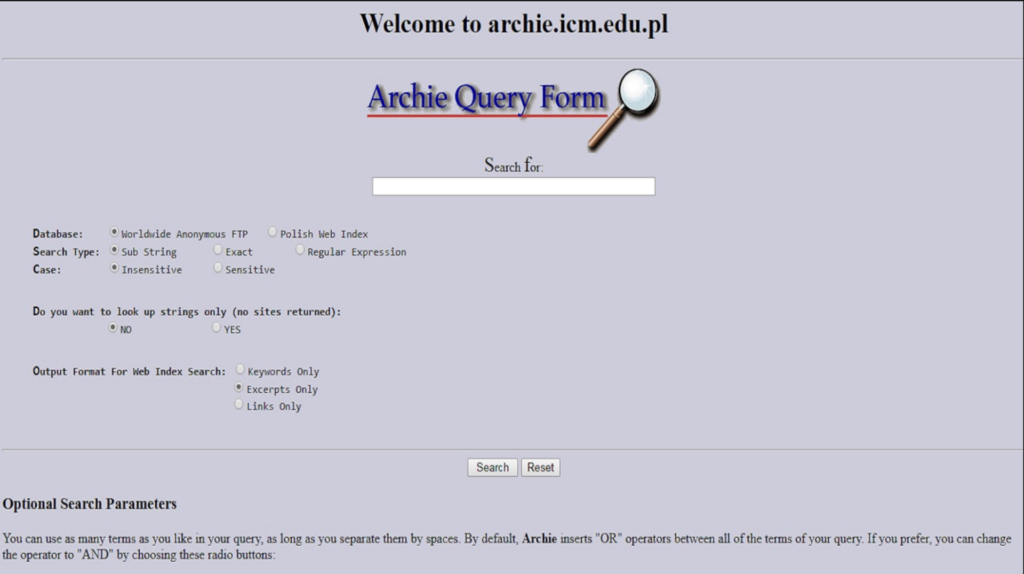Archie is a tool for indexing FTP archives, allowing users to easily identify specific files. It is considered the first Internet search engine. The original implementation was written in 1990 by Alan Emtage, then a postgraduate student at McGill University in Montreal, Canada.
Archie first appeared in 1986, while Deutsch was the systems manager at the McGill University School of Computer Science. His predecessor had attempted to persuade the institution to connect to the Internet, but due to the expensive cost — roughly $35,000 per year for a sluggish link to Boston — it had been challenging to persuade the appropriate parties that the investment was worthwhile.

This first search engine had nothing to do with the interactive interfaces we know. On the contrary, its interface was a simple landing page with a few search parameters.
In 1992, Emtage along with Deutsch and some financial help from McGill University formed Bunyip Information Systems the world’s first company expressly founded for and dedicated to providing Internet information services with a licensed commercial version of the Archie search engine used by millions of people worldwide. Heelan followed them into Bunyip soon after, where he together with Bibi Ali and Sandro Mazzucato was a part of the so-called Archie Group. The group significantly updated the Archie database and indexed web pages.
Archie has since been superseded by other, more sophisticated search engines, including Jughead and Veronica. These were in turn superseded by search engines like Yahoo! in 1995 and Google in 1998. Work on Archie ceased in the late 1990s. A legacy Archie server is still maintained active for historic purposes in Poland at the University of Warsaw’s Interdisciplinary Centre for Mathematical and Computational Modelling.
According to the Wikipedia














